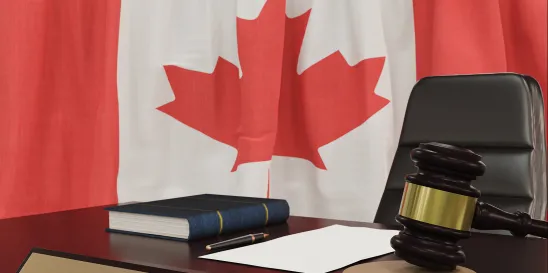The Federal Court of Canada recently ruled that the designation of “plastic manufactured items” (PMI) as a toxic substance under the Canadian Environmental Protection Act (CEPA) was both “unreasonable and unconstitutional.” Responsible Plastic Use Coalition v. The Minister of the Environment and Climate Change, 2023 FC 1511. Specifically, the opinion upends a May 14, 2021 Order that added PMI to the List of Toxic Substances under Schedule 1 of CEPA, and opened the door to broad regulation of PMI, including phase-outs under the Single Use Plastic Prohibition Regulations (SOR/2022-138) (SUP Regulations).
The Court’s decision is a victory for industry and provincial rights. The challenge was spearheaded by a coalition of plastic manufacturers that asserted the listing of PMI was unconstitutional, as it exceeded the limits of federal criminal law power. They also alleged that the Order failed to comply with the statutory scheme of CEPA. The provinces of Alberta and Saskatchewan joined in support of the constitutional challenge. The Court agreed with the applicants on both fronts, holding that “PMI was too broad to be listed on the List of Toxic Substances in Schedule 1 and this breadth renders the Order both unreasonable and unconstitutional.” Responsible Plastic Use Coalition, 2023 FC 1511, at para. 10. A key aspect of the coalition’s argument centered on the fact that CEPA permits the addition of either a “substance” or a “class of substances” to Schedule 1. Where a class of substances is added, the substances must:
(a) Contain the same portion of chemical structure;
(b) Have similar physico-chemical or toxicological properties; or
(c) . . . . have similar types of uses.
CEPA, § 3(1). Here, PMI was not only found to be a much broader category, but the Court also determined that the designation of all PMI as toxic was “devoid of consideration of the extreme variability in the shape and type of plastic used to make items and of plastic’s variable properties, or whether the plastic item is conducive to causing harm to animals from strangulation or suffocation or to the environment.” Responsible Plastic Use Coalition, 2023 FC 1511, at para. 80, 114.
The coalition and intervening provinces also argued that the breadth of the Order was unconstitutional as it went beyond the scope of the government’s federal criminal law power. Although the Supreme Court of Canada has recognized the protection of the environment through prohibitions against toxic substances, as a “‘wholly legitimate public objective in the exercise of the criminal law power,’” the challengers asserted that this Order “does not seek to restrict toxic substances, but rather to manage plastics in the economy.” Responsible Plastic Use Coalition, 2023 FC 1511, at para. 139, 141. The Court agreed, finding that the failure of the Order to restrict PMI – and thus, potential regulations – to only those plastics “that truly have the potential to cause harm to the environment,” posed “a threat to the balance of federalism” between federal and provincial powers. Responsible Plastic Use Coalition, 2023 FC 1511, at para. 184.
Although implicated, the validity of the recently approved Strengthening Environmental Protection for a Healthier Canada Act (Bill S-5), which amended CEPA and repealed and re-enacted Schedule 1, is not addressed by the Court’s ruling. Responsible Plastic Use Coalition, 2023 FC 1511, at para. 204. Instead, the ruling quashes the 2021 Order adding PMI to Schedule 1, declaring it both invalid and unlawful. The removal of PMI from Schedule 1 will be left to the Governor-in-Council (GIC), with statutory authority under CEPA to issue orders adding or removing substances to Schedule 1. That said, the Canadian Minister of Environment and Climate Change and Minister of Justice and Attorney General recently released a statement on X (formerly Twitter) indicating that the government intends to appeal the ruling.
The Federal Court and the parties recognized that the ruling will likely have “direct practical implications” on the pending administrative and constitutional challenge to the SUP Regulations that prohibit the manufacture, import, and sale of six categories of single-use plastics. Responsible Plastic Use Coalition, 2023 FC 1511, at para. 33; Petro Plastics Corporation Ltd et al v. Canada (Attorney General), Court File No. T-1468-22. As the SUP regulations were issued on the basis of CEPA subsection 93(1), which permits the GIC to issue regulations addressing Schedule 1 listed substances, it seems likely that the SUP regulations will lose their basis once PMI is removed from the Schedule. Single-use Plastics Prohibition Regulations, SOR/2022-138, Canada Gazette, Part II, Volume 156, Number 13.





 />i
/>i

